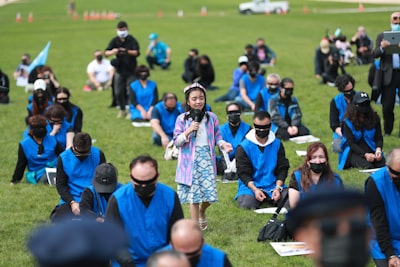Crimes Against Humanity
Crimes against humanity constitute one of the core categories of serious international crimes in contemporary international law, alongside war crimes, genocide, and crimes of aggression. The concept refers to certain acts—often committed as part of a widespread or systematic attack directed against civilians—that are considered to violate human dignity and shame the collective conscience of humanity.
Definition and Legal Framework
Crimes against humanity are legally defined in several international treaties and statutes, most notably in the Rome Statute of the International Criminal Court (ICC). According to Article 7 of the Rome Statute, crimes against humanity include a range of acts when committed as part of a widespread or systematic attack against any civilian population, with knowledge of the attack. Such acts include, but are not limited to:
- Murder
- Extermination
- Enslavement
- Deportation or forcible transfer of population
- Imprisonment or other severe deprivation of physical liberty
- Torture
- Rape, sexual slavery, enforced prostitution, forced pregnancy, enforced sterilization, or other grave forms of sexual violence
- Persecution against any identifiable group on political, racial, national, ethnic, cultural, religious, gender, or other grounds
- Enforced disappearance of persons
- The crime of apartheid
- Other inhumane acts of a similar character causing great suffering or serious injury
Historical Development
The notion of crimes against humanity was first articulated during the Nuremberg Trials (1945-1946) in the aftermath of World War II. The Nuremberg Charter characterized such acts as part of comprehensive attacks against civilian populations. Since then, the concept has evolved, particularly with the establishment of various international criminal tribunals—such as the International Criminal Tribunal for the former Yugoslavia (ICTY) and International Criminal Tribunal for Rwanda (ICTR)—and, most significantly, the ICC.
Elements and Distinctive Features
Unlike war crimes, crimes against humanity do not have to be committed in the context of armed conflict. Their defining feature is the systematic or widespread attack against civilians. The acts must be part of a state, organizational, or policy-driven process, and isolated acts are typically not within scope unless they form part of a broader scheme. There is often a requirement to show that the perpetrator was aware of the attack and intended their actions to contribute to it.
Accountability and Prosecution
National courts, as well as international and hybrid tribunals, can prosecute crimes against humanity. The ICC, established by the Rome Statute in 2002, is the only permanent international criminal tribunal with the jurisdiction to prosecute individuals for crimes against humanity, among other grave crimes. Several ad hoc tribunals and special courts have jurisdiction over these crimes on a case-by-case basis.
Significance and Contemporary Relevance
Crimes against humanity are considered non-derogable crimes under international law and are subject to the rule of universal jurisdiction, permitting any state to prosecute offenders regardless of where the crimes occurred. The concept serves both a symbolic and practical function in reinforcing global norms against egregious violence toward civilians. Investigations, public awareness, and prosecutions of crimes against humanity are essential in pursuing justice, deterrence, and reconciliation following systematic atrocities.
Challenges
Prosecuting crimes against humanity requires nuanced evidence of state or organizational policy and intent, as well as international cooperation. Issues relating to politics, state sovereignty, and non-cooperation with international justice mechanisms can hinder prosecution and accountability.

Comments
No comments yet. Be the first to comment!